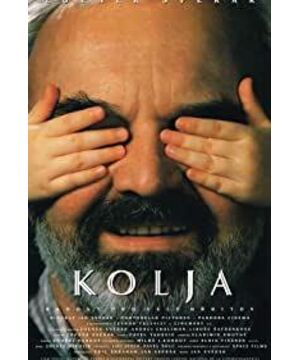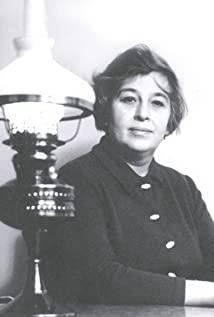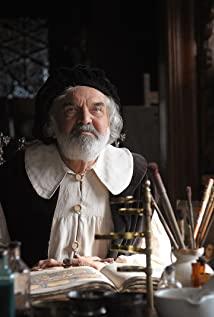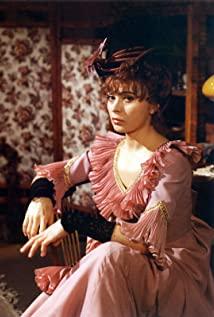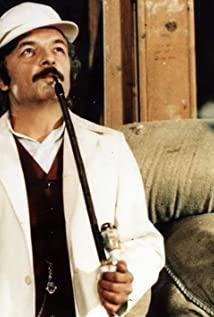This film won the 1997 Oscar for Best Foreign Language Film. From the perspective of genre, it has many similarities with the Brazilian film "Central Station" that won the Golden Bear Award at the Berlin Film Festival in 1998. In the history of film, there are a large number of works focusing on the interaction between the elderly and the children. Among them, "Central Station" and "New Paradise Cinema" are both excellent works, and "Wandering" is my personal favorite of this type of work. One, but because it involves some political issues, it is not particularly well-known in China.
In "Central Station", the heroine is a woman in her fifties who earns a living by writing letters for others at the Central Station. The people who meet and see each day are those who live in more difficult lives. The heroine's character is withdrawn and slightly mean. The poor family and gloomy childhood made her hold a pessimistic and distrustful attitude towards interpersonal relationships. However, by chance, she had to take a 9-year-old boy who lost his mother suddenly to find the boy’s father. As a result, this embarrassing and difficult journey not only allowed the boy to find his relatives, but also allowed the girl to find the boy’s father. The protagonist walks out of his life, looking for optimism and hope.
In "Wandering", the actor is a 50-year-old cellist in Prague, Czech Republic, occupied by the Soviet Union in 1988. Due to the complex and oppressive political environment, the male protagonist develops a cynical life attitude. He does not want to get married but is everywhere, and he does not want to emigrate but passively resists various political movements. It wasn't until a 5-year-old Soviet boy suddenly broke into life, forcing the hero to put aside all political resistance consciousness, take responsibility and face life. When the little boy's mother took him back, the actor could already look at his surroundings with a peaceful mind.
"Central Station" and "Wandering Zi" are not only similar in genre, but also have many similarities in their content arrangements, such as making tops for boys to convey emotions of acceptance and identification, and to bring out the embarrassing changes in the relationship between men and women. The distance between the protagonist and the child is closer. However, in terms of style, "Central Station" presents the enthusiasm, cheerfulness and directness unique to Latin Americans, while "Wandering" is the simple, calm and subtle characteristic of Eastern European movies. No wonder "Central Station" was rated as one of the "best movies".
■The protagonist of "The Wanderer" is called Luca, who was originally a cellist in the symphony orchestra. Because his younger brother immigrated to other western countries, he received special attention from above. After returning from a foreign performance, he was asked to write an inspection and report what he had said to people he had been in contact with. As a result, he wrote "general homework" and was kicked out of the orchestra. Luca later went to the funeral to play for the funeral, and part-time to repair the lettering on the tombstone.
The film has a special sense of political humor in this part. Luca never told his mother about his expulsion from the band. When a friend teased in front of his mother: Are you still playing for the dead? Luca explained to her mother: The orchestra calls those unintelligible and unresponsive listeners dead. When a secret police interrogated Luca, he threatened him if he didn't tell the truth, he would not be confused, and then he could only play the violin to the dead. Another policeman on the side whispered: He is already playing the violin to the dead.
In the 1980s, the relationship between the Czech Republic and the Soviet Union was very complicated. The Soviet army liberated the Czech Republic, but then they stayed there. Most of the Czechs hate the Soviets in their hearts, but they all learn to speak Russian. However, Luca especially hates the Soviets and refuses to learn Russian at all. Ironically, in order to raise money, he had to agree to a fake marriage with a young Soviet woman, so that this woman could obtain Czech citizenship. As a result, the woman ran to West Germany with a Czech passport shortly after the wedding, leaving her 5-year-old son as a guarantee. In this way, this 5-year-old boy named Koriya, who only speaks Russian, entered Luca's life and stayed on.
The Soviet woman left Luca not only a little boy, but also a lot of trouble. The emigration of his younger brother to the Western world had caused Luca to be in a difficult situation. Now he married a Soviet wife and ran away only a few days later. It was only a matter of time before the secret police caught Luca. For this reason, Luca had no choice but to not make any mistakes, but also to take care of the boy Coria, so as to cover up the criminal facts of the fake marriage.
Korya is a cute boy, but he can’t communicate with Luca in words, and it seriously interferes with Luca’s tryst with the women. What’s more annoying is that Korya is very excited when he sees the Soviet flag and Soviet soldiers. Seeing idols. In this regard, Luca actually has nothing to do. After all, this is only a 5-year-old child. Luca can only criticize the Soviet Union a little bit like talking to Coria, and then accept Cory confessedly. The fact that Ya entered his own life.
Luca took Korya to play in the funeral, took him to the police station to be interrogated by the secret police, and was forced to take him to the cinema to watch Soviet cartoons in Korya's tears and nose. Luca not only stopped calling many girlfriends for a spring night out, but also called his girlfriend who taught Russian, and asked her to tell Korya stories in Russian on the phone so that he could sleep peacefully.
For Luca’s good care, Korya returned with a deeper and deeper trust and dependence. In the process of following up and going, Korya also learned simple Czech, and was able to communicate with Luca and learn from Luca. Learn Czech customs and legends there. At the end of 1989, more than 100,000 people held a parade in Prague ("Velvet Revolution"). Coria sat on Luca's shoulders and shouted together. The two of them also saw from a distance the two who had interrogated their secrets. The police also laughed and shouted in the crowd.
Not long after the parade, the Czech Republic achieved a peaceful transfer of power, and the Berlin Wall was toppled in the same year. Koria's mother can finally return to Prague to pick him up. Luca sent the two away peacefully. After that, he returned to the symphony orchestra and married the soprano who has always loved and waited for him among his girlfriends, waiting for the arrival of a new life together.
■Compared with "Central Station", "Wandering" has a calmer tone, and the emotional ups and downs are not as strong and unrestrained as the former, which is lightly moving and comforting. However, both convey love and hope, telling people that even in difficult situations, they can still find beauty and hope in them.
Through the story of Luca and Korya, "Wanderer" presents the political pressure and environmental dilemmas faced by the Czechs and Soviets of that era. At the national level, this is an invasion and occupation, but at the personal level, it involves a group of good-natured people. Even the Soviet soldiers and secret police in the Czech Republic are just a screw under the state apparatus. A blade on the Great Wheel of Times had to dance with the state apparatus and the Great Wheel of Times.
When political mistakes are corrected and the direction of history is reversed, lessons should be passed on instead of hatred. Although the young Koriya is a Soviet, with the blood of the Soviets, he has never participated in the mistakes of history. In him, he embodies the nature of innocence and kindness. It is simple to distinguish people from each other based on the depth of love. nature.
In the film, Luca's mother always talks about his brother's intelligence and excellence, but Luca, her despised son, stays by her side to take care of her. Whether a person is good or bad, should be loved or hated, should be judged based on his true behavior, not his nationality, blood, historical background, or status. In fact, the simplest attitude towards life is often the best.
View more about Kolya reviews


